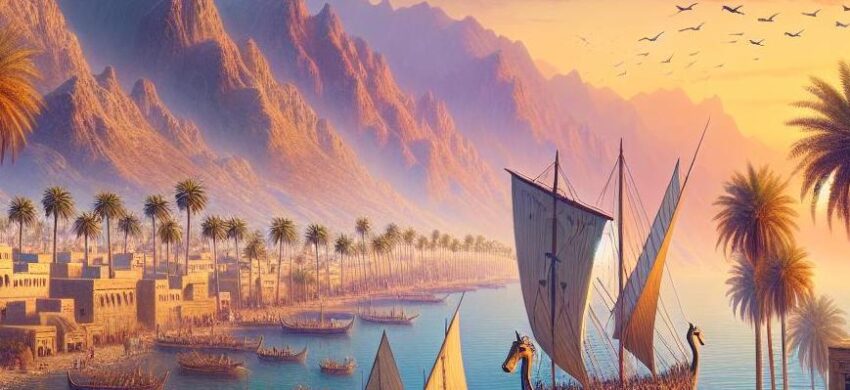The Phoenicians, hailing from what is modern-day Lebanon, emerged as a significant maritime power from 1550-300 BCE. Excelling in navigational abilities and shipbuilding techniques, they facilitated extensive trade networks across the Mediterranean Sea. Their ingenuity was underscored by the development of bireme and trireme vessels, which showcased unparalleled speed, capacity, and maneuverability.
In pursuit of market expansion, they established colonies along coastal regions and islands, notably in North Africa, Sicily, Cyprus, and Spain. These outposts provided strategic access to valuable commodities such as timber, metals and exotic goods. The city-state of Carthage, in modern Tunisia, remains their most notable settlement, eventually growing into a formidable power.
Apart from material trade, they disseminated the alphabet, which is considered a pivotal precursor to modern scripts. This linguistic exchange, a result of their widespread trading activities, had far-reaching consequences for cultural and intellectual growth within the Mediterranean.
Their maritime exploits navigated uncertain waters, fostering connections and enabling cultural exchanges that shaped the ancient world. Their legacy continues to richness in our understanding of ancient civilizations and their interconnectivity.
#1. Question text: Where did the Phoenicians originally come from?
D is the answer. The text states that the Phoenicians hailed from what is modern-day Lebanon.
#2. Question text: What were the Phoenicians renowned for?
B is the answer. The text indicates that the Phoenicians excelled in navigational abilities and shipbuilding techniques.
#3. Question text: What was the most significant settlement established by the Phoenicians?
D is the answer. According to the text, Carthage, in modern Tunisia, is noted as their most notable settlement.
#4. Question text: What were the benefits of the Phoenicians' colonies?
C is the answer. The text mentions that these outposts provided strategic access to valuable commodities such as timber, metals, and exotic goods.
#5. Question text: What non-material contribution did the Phoenicians make to other civilizations?
C is the answer. The text mentions that the Phoenicians disseminated the alphabet, which had far-reaching consequences on cultural and intellectual growth within the Mediterranean.
#6. Question text: What contributions did the Phoenicians' maritime exploits make?
B is the answer. The text indicates that their maritime exploits navigated uncertain waters, fostering connections and enabling cultural exchanges that shaped the ancient world.
 |
 |
 |





